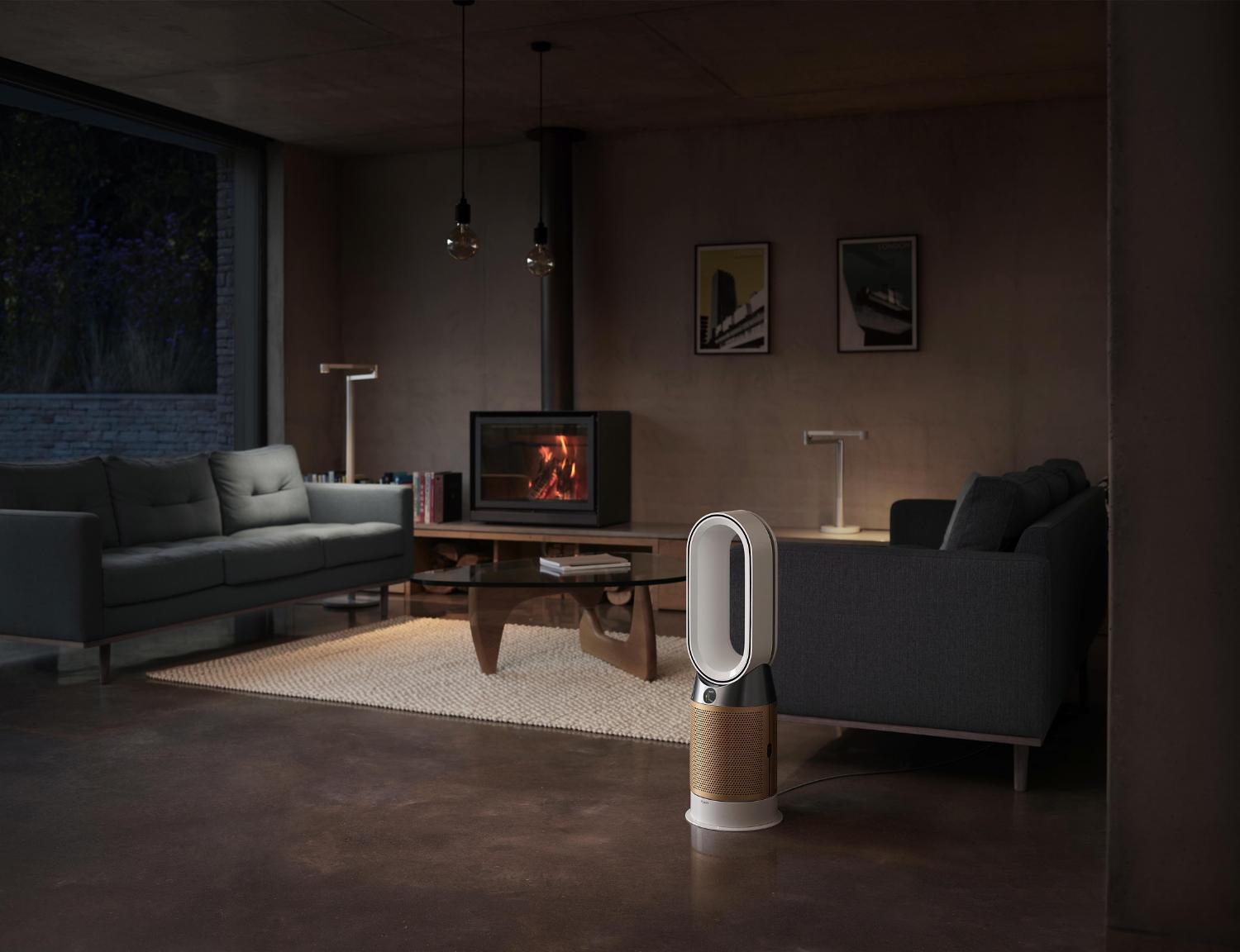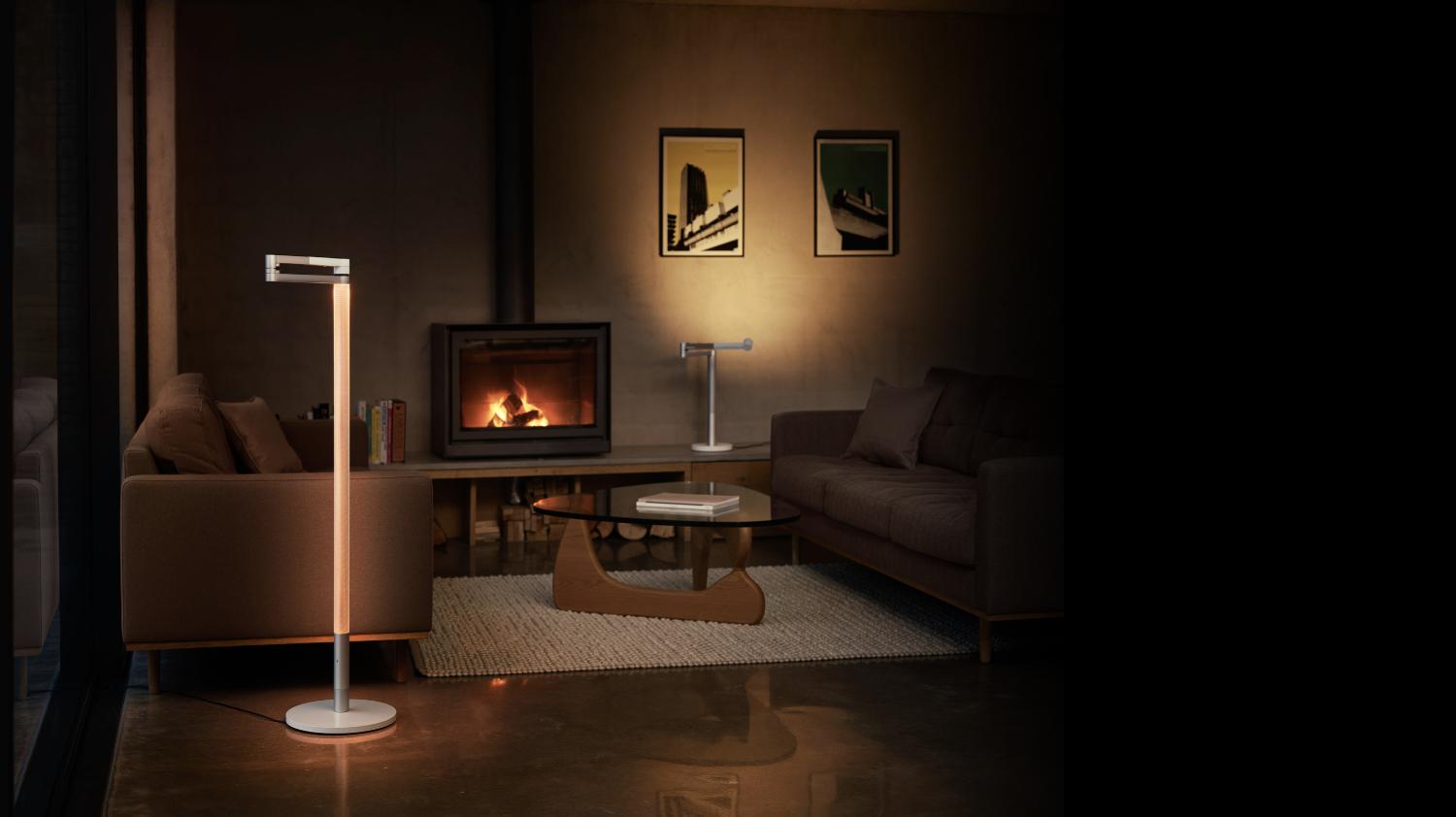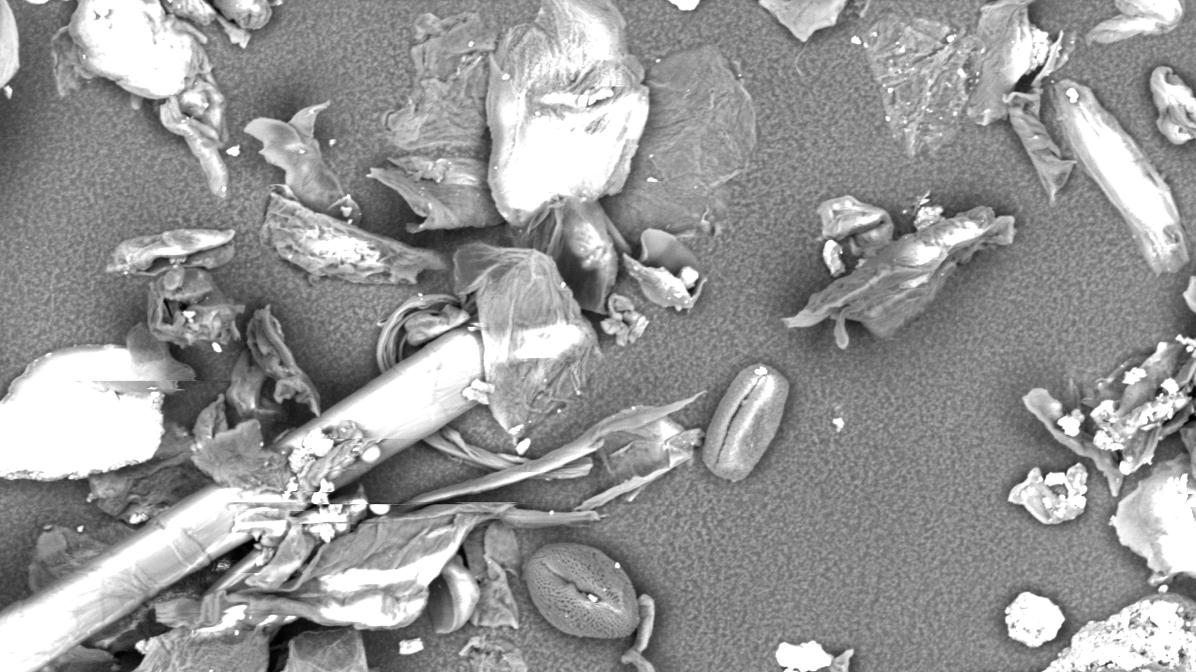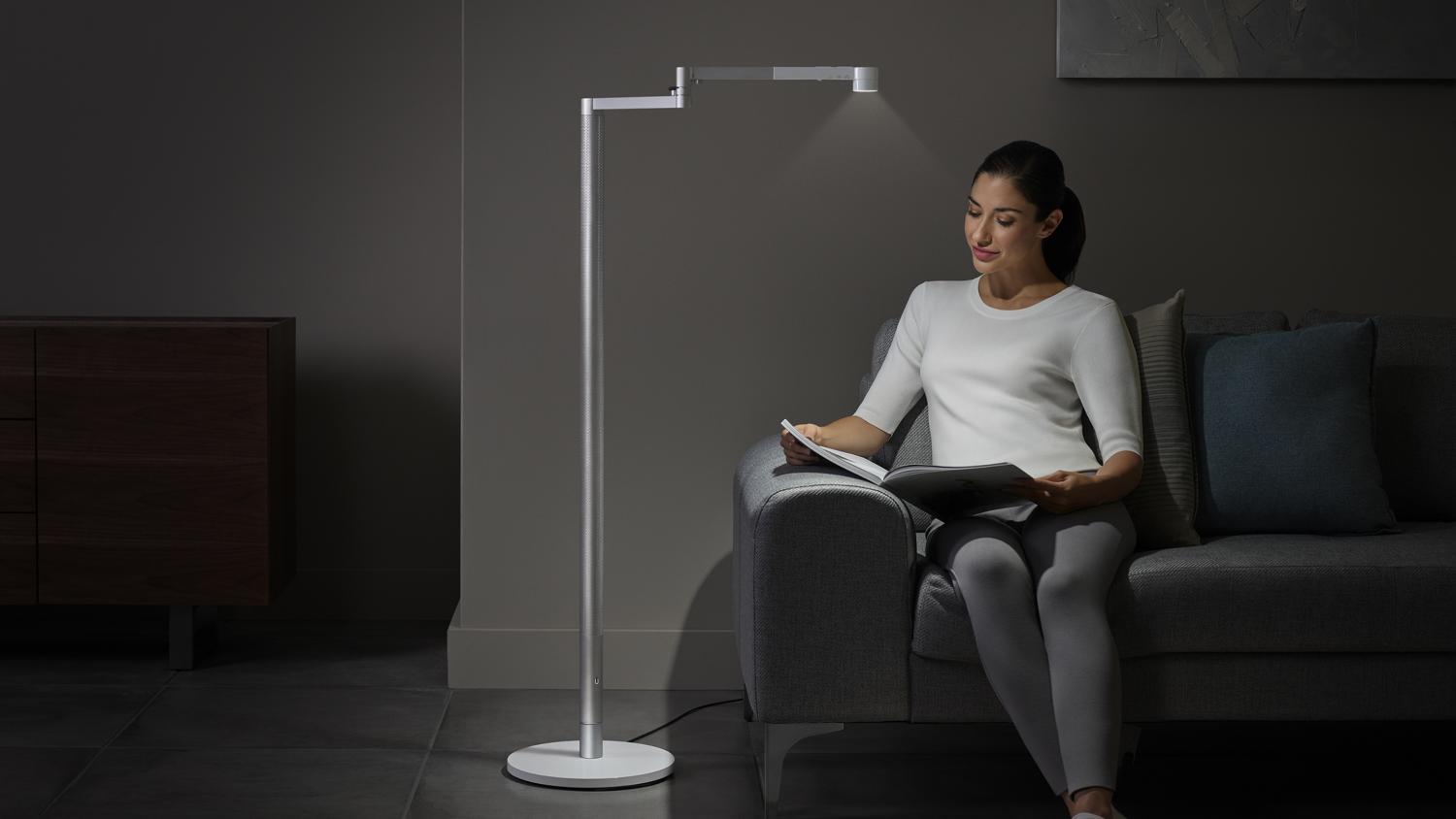HEALTHY HOMES AND WORKPLACES
Welcome to our Healthy Homes and Workplaces 10-part series. In these stories, we delve deep into the science and engineering behind our machines to reveal our Dyson top tips, tricks and recommendations for keeping your home and workplace clean and healthy though lockdowns and beyond. Find out more on Instagram through #DysonHealthyHome.


Get cosy with caution
How to maintain a healthy home during the long, cold winter.
The winter months can be dark, cold, dry, and more polluted than we think. Throughout the year, we spend an average of 90% of our time indoors¹, yet this increases as the weather turns colder and we settle down into our homes for the winter. But how are our winter habits impacting our wellbeing?
Shed light on the matter
Once the clocks go back, we function for significant parts of the day with much lower natural light levels. For many, this can trigger a negative change in mood, with medical bodies citing shorter daylight hours as a potential cause of Seasonal Affective Disorder (SAD).²
The constant flickering of candles and open fires can put strain on our eyes if used to light specific tasks. For studying or working, with many more people in local lockdowns, brighter, bluer light is important to help with focus and concentration. Daylight tracking technology within the Dyson Solarcycle™ range supports the body clock by providing the right light for the right time of day, as well as being flexible – from task lighting a specific workspace, to ambient mode, mimicking candlelight without the straining flicker.
Breathe easy
It’s not just light quality that open fires and candles can impact. Any combustion event with an open flame can release many different pollutants into our homes. Smoke is formed from unburned carbon particles, released into the air as the hydrocarbon chain of candle wax breaks down. Candles and other scented products like reed diffusers can emit volatile organic compounds (VOCs) into the air – a form of gas pollution.
Senior Design Engineer, Sam Railton says, “By spending more time indoors during the colder months, our day-to-day activities increase the level of indoor pollutants – from cooking and cleaning, to using personal care products like deodorant.”
Rather than sacrifice these winter staples, you can opt for methods that minimise the impact of indoor air pollution. Dyson purifiers are engineered with HEPA filters as standard. The fully sealed filtration system combines an activated carbon filter and a glass HEPA filter. Working together they remove 99.95% of allergens and pollutants as small as 0.1 microns. ³ Meaning the air you breathe is cleaner.
Don’t wait for the dust to settle
Dust mites thrive in dark, warm, and humid places where skin cell debris is high, like sofas and beds – those spaces in which we spend many hours getting comfy. Everyday activities like using central heating can disturb microscopic dust, resulting in airborne particles that contribute to pollution levels in the home.
Regularly vacuuming soft furnishings can help reduce the allergens in your home. The Dyson V11™ cord-free vacuum cleaner has twice the suction power of any other cordless vacuum cleaner. And the six stages of filtration capture dust and particles, while the high integrity seals prevent them from leaking back into the air.
-

We spend roughly a third of our lives in our beds, but studies show that hardly any of us regularly prioritise our mattresses as part of our cleaning regimens. Dyson engineers share top tips on how to keep your mattress clean – and tackle the microscopic life lurking beneath the sheets.
-

With autumn already here and the clocks going back at 02:00 on Sunday 25th October, the change in daylight hours can affect our sleep patterns. We often look forward to an extra hour of sleep but evidence suggests we do not actually benefit from it.




